Issue 23: The Vertigo of the List
Thought, memory, and action.
The Unlikely Guide un-stacks the Venetian lagoon every week and celebrates it in all its complexity. It’s a declaration of love to the local people, to the fish, the artichokes, to the Lido, to Murano, to Sant’Erasmo, and to the mud. It is composed under various headlines and features science fiction, fiction, Biennale reports, and the History Channel with stories and myths from the lagoon.
Here we go, Number 23 :
etc…
Yesterday, we turned to ChatGPT to find out what lists actually are. Here’s what it said: “Lists are deceptively simple, but they’re powerful tools for structuring thought, memory and action.” Summarised in a list:
1. Organizing the world:
a.) Breaking down complexity, e.g. to-do lists, grocery lists.
b.) Making comparisons or categories clearer e.g. pros and cons, features of a design.
c.) Prioritizing and sequencing tasks or ideas.
2. Thinking and remembering:
a.) Offloading memory so it’s out of your head.
b.) Clarifying what matters, write it down and you see what’s essential.
c.) Supporting creative thinking e.g. brainstorm lists.
3. Communicating and persuading:
a.) Information becomes easy to scan and digest
b.) Making arguments more structured and convincing “three reasons why…”.
c.) Creating rhythm and rhetorical emphasis (lists in literature, speeches, manifestos).
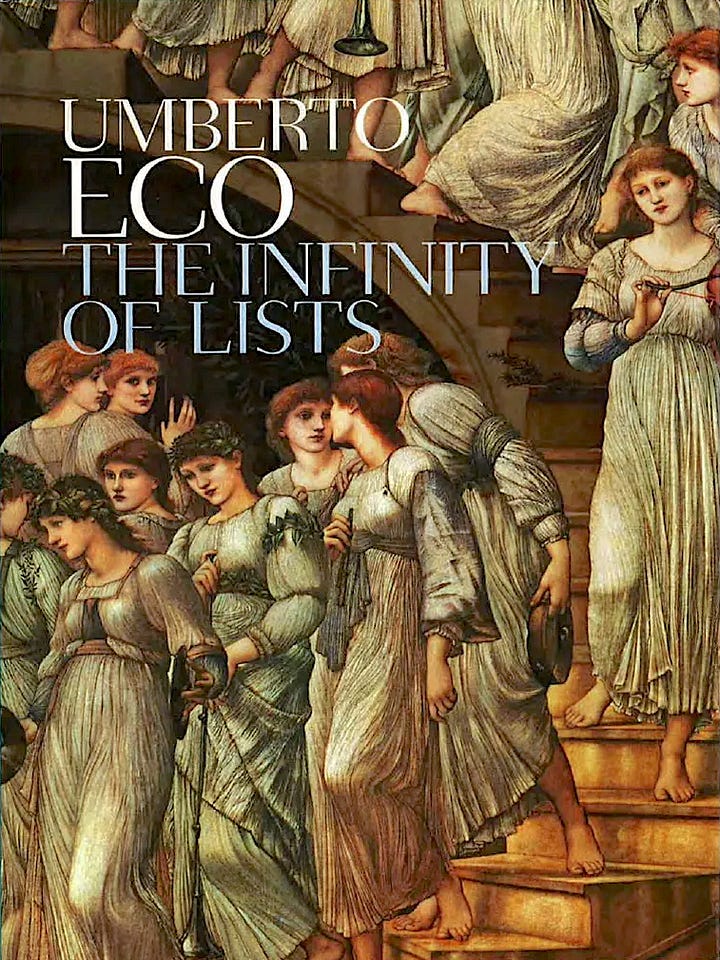

(Because we received some of feedback, a note about the caption above. The Eco quote comes from this interview from November 2009. We do not wish to downplay pedophilia in any way. And as far as we understand it, and as we understand Umberto Eco, he deliberately included it in his list, detaching it from the “etcetera,” so to speak. As a demarcation, a wake-up call, and full of disgust. The connection between soccer and pedophilia could refer to Berlusconi, who was the owner of AC Milan and was charged in 2010 for the Bunga Bunga parties.)
A nice list about lists, isn’t it? And then this morning, ChatGPT woke us up with the question: “Do you want me to sketch how Umberto Eco’s The Infinity of Lists” (a wonderful book from 2009, originally La Vertigine della Lista, i.e. The Vertigo of the List) “connects to Jacques Derrida’s etc.-function you asked about earlier?” ‘Earlier’ here means a few days or weeks ago. And although we didn’t ask about Derrida’s etc. function, but rather Umberto Eco’s etc. function, because we could remember his term but not where we got it from. We answered YES.

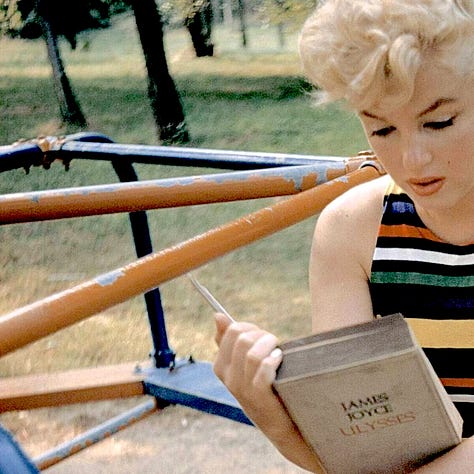
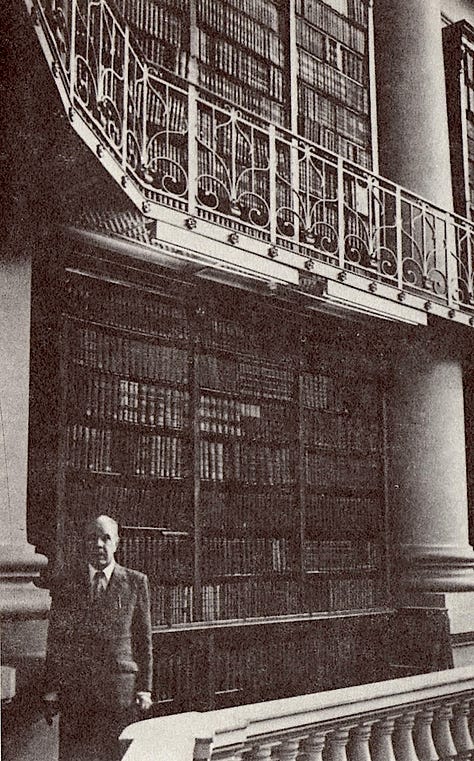
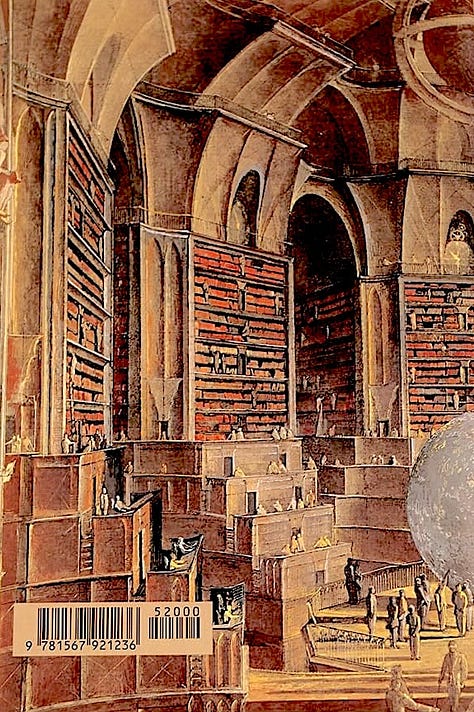
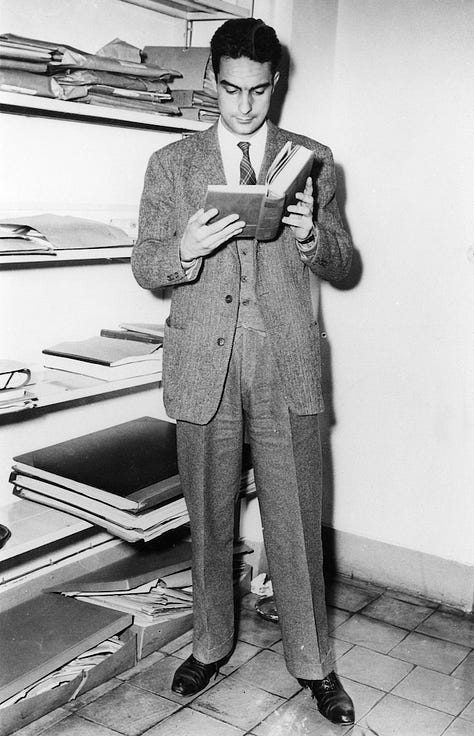

This naturally resulted in a new list. Point 2.) is about Umberto Eco’s book: Lists are a way to “touch infinity.” We use lists to point out things that are beyond their understanding. Love, the universe, God, beauty. Then we list the parts or characteristics and the list becomes a substitute for the infinite. Point 3.) is then a list of lists or list makers: Homer’s epic catalogues. Medieval relic lists. Renaissance collections and cabinets of curiosity. Baroque enumerations. Modern and postmodern writers like James Joyce, Jorge Luis Borges or Italo Calvino, who delight in endless inventories.
Then Jacques Derrida comes into play, with the (now shared) etc.-function. It is, so to speak, the answer to a question we never asked: “etc. is a marker of incompleteness and deferral. Writing etc. acknowledges that the list could go on, that language can’t exhaust the field. It’s an opening, not a closure.” etc.
Then it became increasingly confusing, and we told ChatGPT that we hadn’t asked about Derrida’s etc. function but about the concept of hospitality that appeared in his book Adieu, his obituary for Emanuel Lévinas. And ChatGPT wrote a new list in less than a second: “Great — let’s bring them together around hospitality:…” Eco’s Infinite List would be an invitation to excess. When Homer lists ships or François Rabelais lists types of cheese, they open a door. The reader is invited to imagine the rest. Derrida treats etc. as unconditional hospitality in language. “I haven’t closed the door; something else can still come.” A placeholder for the unforeseen. The stranger who has not yet appeared. Eco and Derrida would meet in hospitality: the ethical horizon—the willingness to let in what has not yet been written, not yet seen, not yet arrived. And then it comes, the unexpected: Point 4c.) “VENICE’s urban texture — repeating bridges, campi, façades — is itself list-like, extending beyond what one can see, holding space for arrivals.” Venice is a list!
ChatGPT, already completely on a high, sent out a poetic manifesto: ”… The true list is never about possession. It is about making room. Lists as Hospitality.”
There are lists you don’t want to be on because you’ll get fired, deported, or even killed. And then there are good lists. The ones that save lives. Like Oskar Schindler’s list. There are clear list artists like Hanne Darboven, Jenny Holzer, On Kawara, and basically Sophie Calle, who we’ve mentioned a bunch of times. Wikipedia answers with lists. ChatGPT does too, of course. Umberto Eco called it the poetics of the etcetera not etc.function as we thought. That’s why we didn’t find it, but we learned quite a lot along the way. And we found the term again in the foreword to The Infinity of Lists.
We also made lists for last week’s Unlikely Dinner. Ingredients, tableware, wine lists, and last but not least, guest lists. Those were easy: there were about 35 of Deane Simpson’s students coming from Copenhagen from the Royal Academy. Plus a few other teachers. 25 Hong Kong students of John Lin (Chef), plus teachers, about 10 guests from the Vatican and a few from Tatiana Bilbao. And 20 of us. Mainly locals. A great mix!

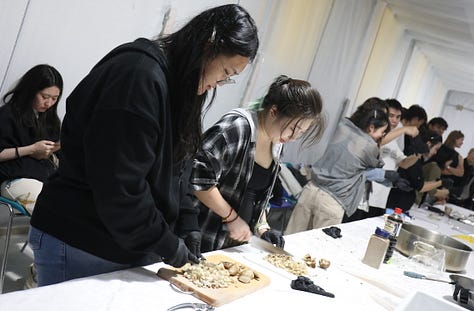

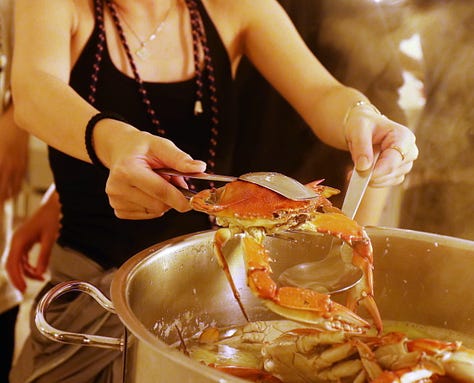
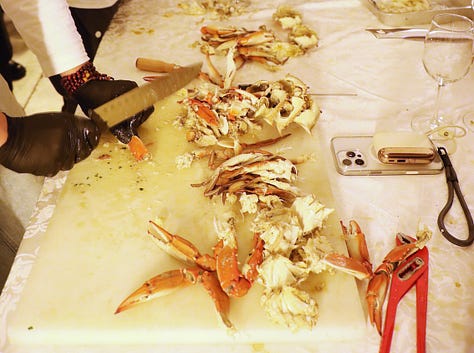

The students from Hong Kong had difficulty getting to Venice because there was a general strike throughout Italy on Monday. Around half a million people took to the streets. Under the slogan Blocchiamo tutto (Let’s block everything), there were protests in at least 75 municipalities. With schools closed, trains disrupted, roads and ports blocked. In Rome, 100,000 people occupied the main station before marching through the streets. The strike was called by several grassroots unions demanding that the government end economic and military cooperation with Israel. Once again, it was the dockworkers in Genoa, one of Europe’s most important ports, who took the lead. They did so in solidarity with the Global Sumud Flotilla, the civilian convoy that set sail last month to break the Israeli blockade of the Gaza Strip. The ships were attacked by drones, prompting Prime Minister Giorgia Meloni to respond by dispatching warships. After all, there are Italians on board, including politicians. However, Meloni described the whole thing as “dangerous, and irresponsible.” The activists should hand over their cargo in Cyprus.
The mobilization in Genoa in July and August exceeded all expectations. The organizers called on the city to donate 40 tons of food, which was to be distributed among four ships. They received 300 tons. And 40,000 people, in a city with a population of 560,000, joined the march. It was the largest demonstration since the 2001 G8 summit. In Piazza De Ferrari, Mayor Silvia Salis spoke about the history of anti-fascist resistance. A representative of the Roman Curia said Genoa had shown that it believes “another world is possible.”
Since October 2023, dockworkers have been mobilizing against the war in Gaza. They are responding to a call from Palestinian trade unions to block arms shipments to Israel. In cooperation with French dockworkers, shipments to Saudi Arabia were also blocked because the cargo was destined for the war in Yemen. After this was finally delivered via Venice, the workers established an anti-war network across Europe to track and disrupt global arms trade. The dockworkers of Genoa can look back on a long list of international solidarity. In 1973, they sent a ship with food to the Democratic Republic of Vietnam. It’s something the city is still proud of today. They also blocked cargo ships supplying Augusto Pinochet’s dictatorship in Chile and boycotted the apartheid regime in South Africa.
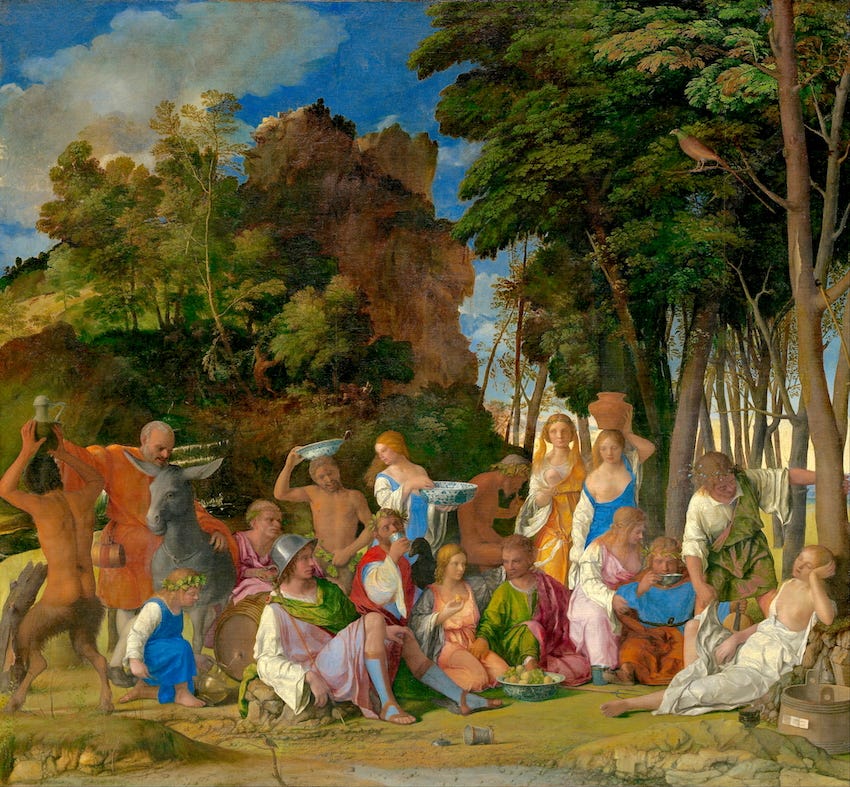
We originally asked ChatGPT for lists because we want to create some ourselves. Finally. A real travel guide! A list of the best restaurants between the Arsenale and the Giardini. The best exhibitions, the most famous living Venetians (spoiler: Terence Hill). The best pavilions in the Giardini, the most beautiful islands, the most important myths, etc. We publish them here on Substack and later on Instagram.
A kind of proto–Eco etcetera is this beautiful list by Jorge Luis Borges:
Animals are divided into:
(a) those that belong to the Emperor,
(b) embalmed ones,
(c) those that are trained,
(d) suckling pigs,
(e) mermaids,
(f) fabulous ones,
(g) stray dogs,
(h) those that are included in this classification,
(i) those that tremble as if they were mad,
(j) innumerable ones,
(k) those drawn with a very fine camel-hair brush,
(l) others,
(m) those that have just broken a flower vase,
(n) those that resemble flies from a distance.From a Chinese encyclopedia called The Celestial Emporium of Benevolent Knowledge in Jorge Luis Borges’ essay The Analytical Language of John Wilkins, 1942.
Enumeration is provisional and open-ended. Every taxonomy, every list, is historically and culturally contingent. This issue of the Unlikely Guide should have been number 22. Some of us already wanted to call the last issue #23. Because of A and B. Or just because. Because in a world where so little is true or right anymore,… etc. In any case, we’ll see you soon with issue 25. Next week already! And before that on Substack and Instagram with lists, lists, lists...
Ciao ragazzi! A presto.


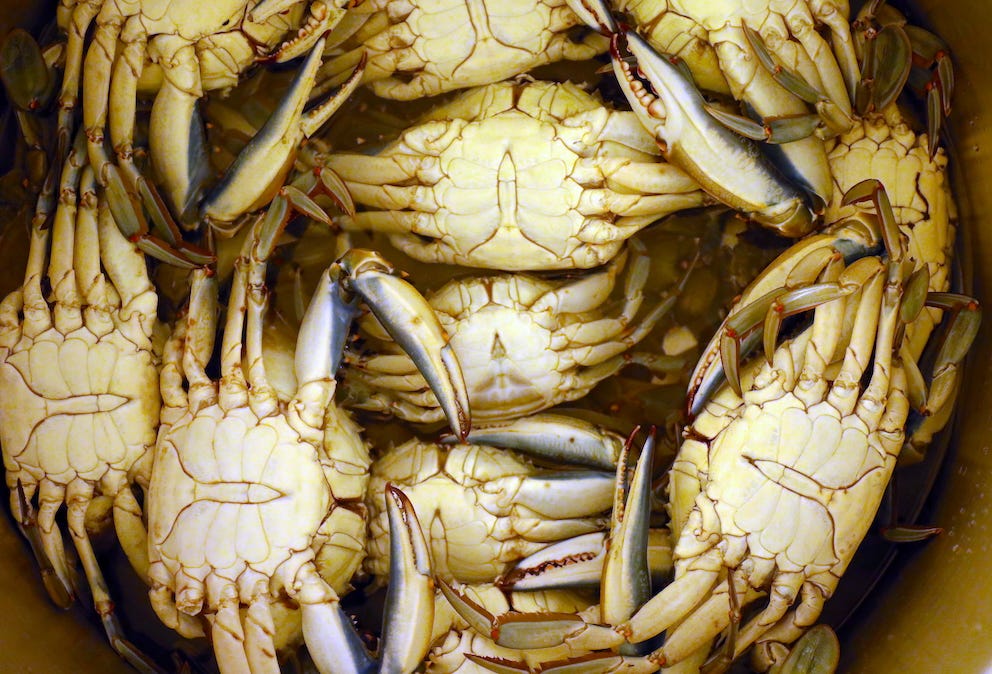
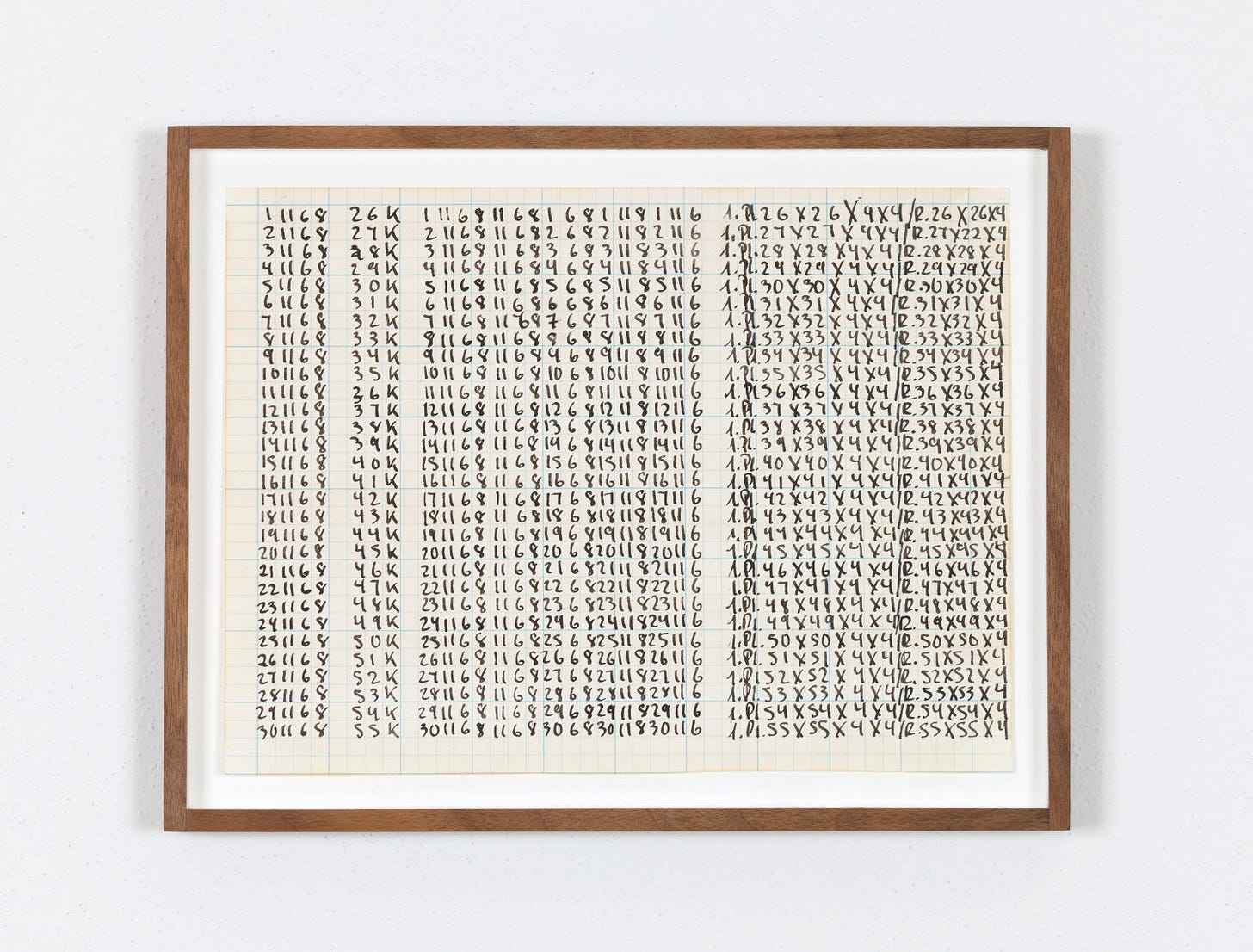
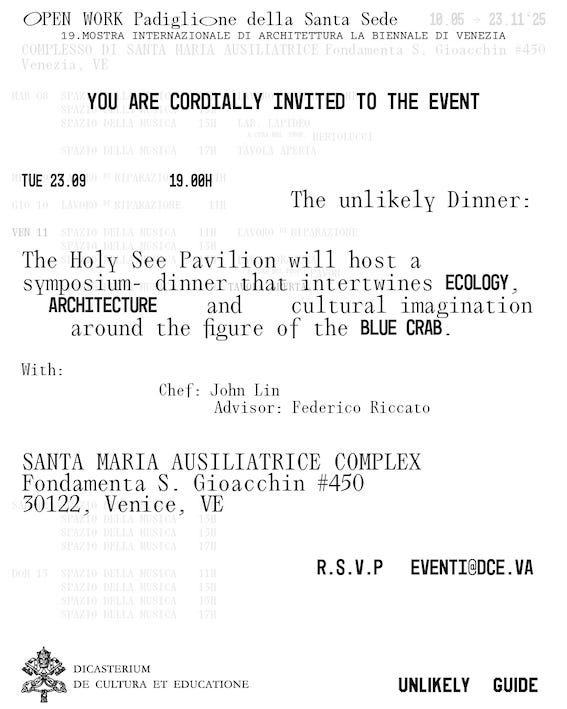
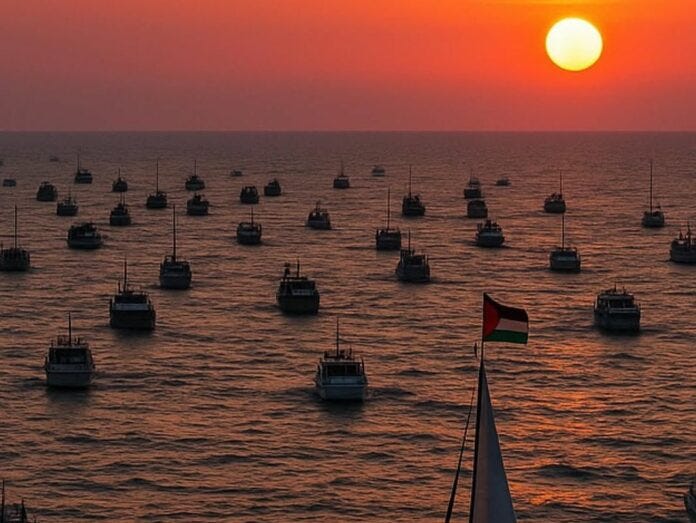
. . . l / m . . . : next to each other - as our abcdaire tells us and what was / is / is going to be next: the issue takes a lot of magnamity to tackle.
list - mist / love - move : they easily get confused
for leisure / mesure see:
jaques roubaud, l'art de la liste, Paris - Tubingen, Le Divan, MIIM. edition Isele
https://www.gallimard.fr/auteurs/jacques-roubaud